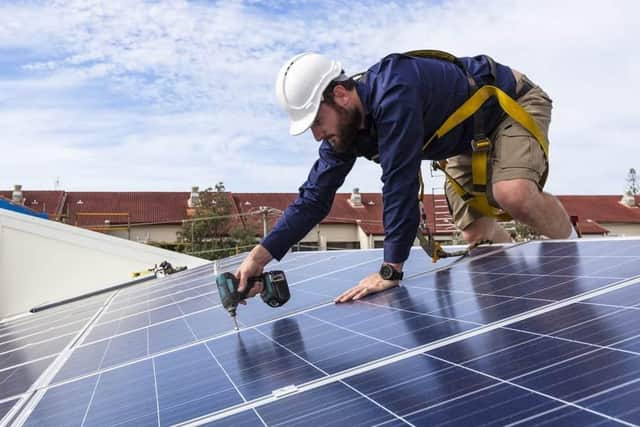Sheffield Council approves £2.2 million to cut emissions from Scouts huts, museums, theatres and libraries
and live on Freeview channel 276
The city was given £2.7 million in capital support from the UK Shared Prosperity Fund (SPF) – which replaced the European Union Structural and Investment Fund (ESIF) after Brexit.
The aim of this pot was to aid recovery from the cost of living crisis and Covid-19 pandemic, and support the cultural and visitor economy.
Advertisement
Hide AdAdvertisement
Hide AdThis week, councillors on the economic development and skills committee unanimously approved plans to spend £2.2 million of that on greening buildings such as community hubs, Scouts huts, museums, theatres and libraries.


Community groups will be able to apply for up to £200,000, on the condition that all work is completed by March 31, 2025.
The money can be spent on things such as LED lighting, insulation, air or ground source heat pumps, double or triple glazing, solar panels, electric vehicle charging points, carbon capturing landscaping and recycling facilities.
Councillor Martin Smith, chair of the committee, said: “It’s great to see the funding from the SPF coming through at long last. We have been waiting for it for an awfully long time.”
Concerns about rent
Advertisement
Hide AdAdvertisement
Hide AdCoun Jayne Dunn, member of the committee, supported the plans but raised concern that it would increase property values and therefore rents for groups who lease their buildings.
She said: “It’s great, it’s absolutely needed. We have an awful lot of buildings that need this, we are sat in one right now (the Town Hall). However, a lot of the groups will be talking about how they lease their buildings, they don’t own them, and it’s a really difficult time after Covid.
“We know that despite all the good intentions, some organisations will not be able to be viable throughout so what checks and balances do we have to make sure that other organisations can’t take advantage?”
Ben Morley, head of City Future programmes at the council, said there was not necessarily a direct link between these “bog standard” improvements and property values, and groups would need to apply in partnership with their landlord.
Advertisement
Hide AdAdvertisement
Hide AdHe added: “We are not just going to provide funding to a landlord who says ‘I have a community building, I don’t care about my tenants – just give me the money’. It won’t work like that.”
The programme comes after the council recently established a £3.5m renewable energy fund focussing on greening council owned buildings.
South Yorkshire’s share of UK Prosperity Fund
In total, £38.9 million was allocated to South Yorkshire from the SPF and of that, Sheffield was given £12.8 million in revenue and £2.7 million in capital.
Last year it was revealed that if Brexit had not happened, in 2021 the EU would have given South Yorkshire a significant increase in ESIF funding estimated to be £125 million a year because it had been recognised as an area in highest need.
Advertisement
Hide AdAdvertisement
Hide AdThis was an estimated loss of £103 million per year for the region that would have been spent on things such as supporting local businesses and jobs, upskilling people, crime prevention and improving the built and natural environment.